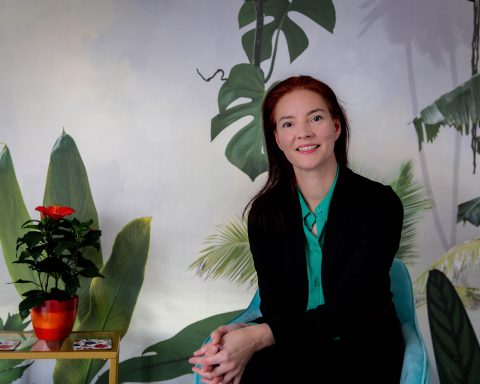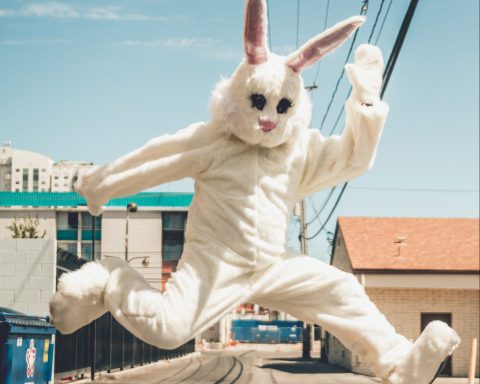No person is your friend who demands your
silences and denies your right to grow.
– Alice Walker
Lately, I have been dreaming of my brother. It seems three or four times a week, he makes some kind of brief cameo in my unconscious. We have passing discussions and there is a sense of reconciliation in these fleeting moments, that the past between us is forgotten, that our relationship, severed for some time, can somehow move on. I feel his presence, even view him with the same kind of sunlit lucidity found in waking life.
Dreams possess their own sense and coherence. When we are dreaming, we believe, while in the unconscious state, that the reality before us is the only one. I’ve woken from dreams believing I still need to finish a university essay or cram for an upcoming exam. The trouble with this particular ‘brother’ in my dream is that though he physically resembles my sibling, the dream version in no way mirrors my real-life brother’s mental and emotional state. In such night-time encounters ‘he’ – who happens to be kinder, gentler and more patient – is far from the reality I have ever known.
Then I awake, and the dream ripples back into some discordant and faintly dissolving memory or non-event, like lyrics overheard or a scene in a movie fast-forwarded; there, but not lasting. And the feeling of ‘there’ but ‘not there’ persists, while the outside world is a place we can physically manage and manoeuvre based on memory.
With simple directions, we find ourselves developing an interior map of experience and knowledge to match and work with the external one. There seems to be an ongoing and reliable relationship between ourselves and the physical world. On the other hand, in dreams we carry both the impression of the dream’s changing landscape and ‘reality’; but when it dies away the next morning, the fading contours have no real anchor, no real cohesion of experience and dimension.
Yet, the emotions linger. I am at times plagued with hope and a feeling of peace I know will never arrive. And with that a longing to see him again, but the ‘him’ that realistically will never be. The dreams feel stark in their bleak dissolution, the emotions of reconciliation sharply contrasted with the current-world emotions – of grief and melancholy.
Still, the dichotomy of such feelings seems to be based on some spectre that lies between what I hope for and what is hopeless. I rest on the pillow in the grey morning light with the bitter knowledge I have come back to myself but my brother never will.
Estrangement is not a word that arises in daily conversation. It is a word that comprises our fears in relationships, especially when we think of the difficulty of relating to those who share our DNA. But I and many others live such a reality. For those who cannot cope with the pressures of family or find themselves conflicted by the expectations of relatives, estrangement becomes a form of escape, a haven but also a hard solution.
For British journalist Becca Bland, it is a harsh reality. Bland has been estranged from her parents for over a decade and writes often of the struggle, an ongoing grieving process of being ‘estranged’, the stigma and confusion surrounding it, whether during the holiday season or contending with it in the world of social media. During a 2013 interview with Nora Young on CBC radio’s Spark program, Bland discusses seeing her mother on Facebook and contending with the conflicted emotions of voyeuristically viewing her parents’ ‘perceived happiness’.
“Estrangement is in the experience of having a discordant relationship with one family member or a number of family members. That means you live in isolation from your family unit”, Bland reveals in a similarly-themed interview on BBC Radio 4, Digital Human with Aleks Krotoski. She talks of the causes of her familial estrangement, namely a conflict in which lines were drawn and she and her parents found themselves on opposing sides of an ever-widening abyss.
I can relate to Bland’s experience. Perhaps it wasn’t one family conflict with my brother but a relationship in which I felt continually disadvantaged by his presence. Though I am the older sibling, I spent a great deal of my life trying to appease and placate a brother whose continuous demands and high expectations of family relationships and dynamics over time wore me down emotionally and psychologically.
A psychologist, upon studying our mutual past, might suggest the separation of our parents and our differing attitudes/behaviours formed the roots of our future estrangement. According to Hidden Voices, a study of family estrangement conducted by University of Cambridge and Stand Alone, a UK-based charity spreading awareness of estrangement, whose chief executive happens to be Miss Bland, “mismatched expectations about family roles and relationships” play a major part in estrangement between brothers. This and “clash of personality or values”.
My brother and I clashed quite a bit over the years.
When I was deathly ill and dishonest regarding sharing the true nature of the disease with my father, my brother overhead a phone message left by my family doctor urging me to return to the hospital. Overprotective of my dad, aware of his incessant worries, my brother resented my rebellion against the medical community, seeing it upset the proverbial apple cart of our family paradigm. For my parent and sibling, one always listened to the doctor and followed instructions. It didn’t matter that I felt the specialists who were treating me ignored my needs; I dared to go against the family and my brother never forgave me for that.
Then, years and years later, after recovering from the worst of the illness, after gaining equilibrium within my body while living in British Columbia, I returned to my native Ontario to live with my brother. He charged me moderate rent in his upscale condo and offered to mentor me in business. I thought our relationship would continue to mend and the past would be discarded in favour of a more viable future.
While I was attempting to start a wine consultant business in the Niagara Region, I quickly learned such a market would be difficult to crack in the then-blue-collar community nestled within the wine country. I was no entrepreneur and my brother, my so-called guide, would not let me give up and became insulting when I suggested looking for alternative employment. I tried to market my wine knowledge services but wine education and consulting had a better market in Toronto, not St. Catharines, my home city still reeling from the 2008 recession.
Instead of stopping and allowing myself to feel the futility of a malfunctioning enterprise closing in around me, I soldiered on, one event of failure following another. I invested more time and money but gained nothing in terms of a positive response or interest from the local business community. I joined networking groups, singles groups, handed out business cards but all the time I felt like a ghost-version of myself. The pressure to succeed felt like an illness in my psyche. After nearly committing suicide over the stress and effrontery of my failing enterprise, and the pressure from my brother, I backed away from a balcony to focus on my own happiness. (When my brother later learned of my suicidal low-point he said he wished I had jumped.)
The wine consulting misadventure aside, there were other things. When I ran out of money and couldn’t find work, he upped the rent and I was forced to go to the welfare office.
Blood is thicker than water.
Even after the welfare incident, finding work, moving out, I did my best to remain in contact with my brother, to forgive previous trespasses. I did this mostly for my father, for the guilt of what I put him through when I was sick and lied about it. But forgiveness, that ever ennobling interior performance, is actually a form of blindness when it becomes steeped in self-infliction. On the surface, one believes one is good, saintly even, by forgiving. But then one ignores the pain or the fact that by forgiving the same person over and over, one has corroborated one’s self in the same torturous habit. It becomes an altruistic addiction/affliction until eventually the pain of anticipated infliction becomes the reality of life.
I eventually stopped forgiving when my brother took advantage of my hospitality in 2014. After I had agreed to let him and his friends stay at my place as a stopover on the way to Chicago – I was then living near the Detroit-Windsor border in Southwestern Ontario – my brother once again took advantage as I attempted to please. Seeing the kitchen in disarray the following morning, the remains of egg yolks in the pan, milk cartons left out, all the while knowing he had saved at least a hundred dollars by not staying in a hotel, I decided I had had enough.
That summer I didn’t go to his wedding.

Though I have these dreams of my brother, seeing his ghost in my unconscious, I feel myself at times confronted with this implacable grief for someone who is still alive. A grief for the person he never became or a relationship that could never be.
In the Hidden Voices study, in the section entitled ‘What do people wish was different’, the majority of those going through estrangement wanted a “more positive, unconditionally loving, warm and emotionally close” relationship, whether with the estranged father or mother, sister or brother, son or daughter.
It is fairly clear what people want most from those they feel are lost to them. But such things may never arrive. In the meantime, there is a feeling of being in limbo, of being unresolved and insecure in the decision to maintain the estrangement. For many, this desire to stay resolved in these distances comes from a place of self-protection, like escaping from abusive family members or fleeing cultures that would have one sex subservient to the other. On the outside, there is the social stigma. Giving up on certain friends and relationships is fine but family is another matter. “He’s your brother,” I have heard now and then, and you “should try to work it out”. But how can that ever happen when neither of us are going to change for the other?
When people do decide to embrace estrangement, it offers a mixed feeling of puzzling grief and relief.
In Ambiguous Losses: Learning to Live with Unresolved Grief, educator and researcher Pauline Boss writes of the human hunger for certainty. “Even sure knowledge of death is more welcome than a continuation of doubt” she notes in her book, describing the unresolved grief whether from estrangement, divorce, Alzheimer’s, immigration, adoption and other traumatic factors. For Boss, it is the landscape between there and not there that is difficult to reconcile, a threshold never fully crossed because of the conflict of hope going up against the harshest of memories.
In Portuguese, there is saudade, sometimes defined as a “melancholic longing for an absent something or someone that you love” or a solemn “nostalgia for something that perhaps has not even happened” or may never happen.
Now that I have been living in Germany, have found my way to some degree, I feel the old vestiges of my hopes (the saudades) for my sibling relationship returning. Hence the dreams. In waking life, sometimes I see the relationships I’ve formed around me as a form of recompense for what I never had with my brother. Other times, I see traits and tendencies of my brother, both positive and negative, in the people I associate with, whether friends, acquaintances or business contacts. Even with an ex-girlfriend, I saw aspects of my brother, her sarcasm resembling his, sometimes her criticism of me like his.
But I understand this ‘there’ and ‘not there’ and have to fight to be more honest and perhaps allow the crueler side of myself to insist that I may never want to see my brother again. It is a realization that haunts me a little, torments the easier and gentler side of my nature. I doubt myself at times and wonder: If my brother returned to me with an olive branch, perhaps sick, looking for support from me, from someone who had gone through what I did, would I be able to offer my compassion, accept his peace offering and go from there?
Acknowledging the limbo, the estrangement that grows in days and months, I turn away from the saintly aspect, the one longing to be good and forgive. I think of Becca Bland again, philosophizing on Digital Human. Estrangement, she notes, nearly echoing Pauline Boss, is “a loss but not a death. You always know the people are breathing somewhere.”
It is this loss that surrounds me with dreams for what could have been. And now that I have come this far, I know I must continue, accept my decision while trying to understand the ‘grief’ that has no comfortable definition.
Maybe by writing this, I will see the figure in my dream as a myth or a surrogate for the future I wanted with my brother. And by knowing this future to be non-existent, I am closer to letting ‘him’ – and him – go.








